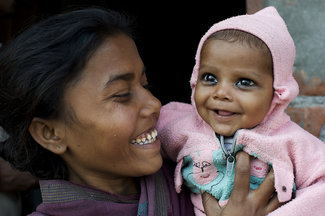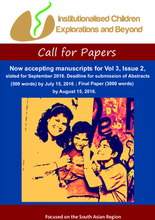

Displaying 521 - 530 of 757
In this talk, Emily Delap from Family for Every Child puts the use of orphanages in Nepal into a global context and explores the international evidence on the harm caused by allowing children to grow up away from families, and on the problems of orphanage voluntourism.
Next Generation Nepal Country Director Martin Punaks talks about orphanage trafficking in Nepal, why orphanage volunteers may inadvertently be part of the problem and how you can be part of the solution through ethical volunteering and other ways of "giving back."
Human Rights Watch has extensively documented human rights violations relating to attacks on education, women and girls’ rights, the situation of Afghan refugees and asylum seekers, child labor, and the judicial execution and ill-treatment of child offenders. This submission proposes issues and questions that Committee members may wish to raise with the government.
A blog article discussing how Nepali families are routinely tricked into sending their children to badly run orphanages.
After being separated from his parents in a Turkish forest, Mahdi Azizi reunited with his family in Sweden after his father spotted him at an open air concert.
Next Generation Nepal is hiring for the position of in-country Country Director in Nepal. This is NGN’s most senior representative and administrator in Nepal. The post of Country Director is a diverse, exciting and challenging role for a highly skilled and dedicated candidate who can lead NGN in its current phase, as well as into a new phase of its development.
In this special feature from ABCNews on orphanage volunteerism in Nepal, ABC News claims that Kathmandu is a major hub for voluntourists who are attracted to Nepal’s many orphanages and children’s homes. However, as the story points out, only 85% of children who live in Nepal’s orphanages are actually orphans. These children are housed in horrible conditions and are often abused.
This study examines the link between Rejection Sensitivity (RS), Attachment Pattern (AP) and Socio-Emotional Adjustment (SA & EA) among adolescent's living in orphanages and those living with their parents. Adolescents (N=360) ranging between 14–18 years completed self-report measures. The findings suggest that there exists significantly positive and negative correlation as well as significant interaction between gender and living conditions among the variables RS, AP, SA and EA.
This study identifies risk factors for voluntarily joining armed groups, as well as to test association of conscription status and mental health.
The ICEB Editorial Board invites submission of abstracts (500 words or less) on topics relating to research and exploration of work with institutionalised children and with children in other alternative modes of care.

